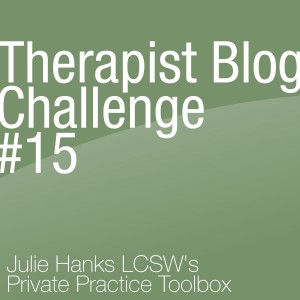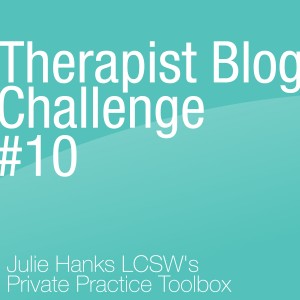Like any worthwhile endeavor, building a successful private practice takes a lot of work, time, and know-how. So why not consult the experts? Here's a list of 10 of the best websites (listed in no particular order) to help you do just that:
Drawing from his 20+ years of experience, Dr. Ofer Zur gives insight on virtually all aspects of the field of psychotherapy and the mental health profession, including practice building and continuing education. He offers practical resources on such topics as using a newsletter for marketing and how to deal with collections agencies. Many of Dr. Zur's publications and packages have a set price, but he does give some free articles and videos.
2) Private Practice From the Inside Out
Tamara G. Suttle, M.Ed., LPC has run a private clinical practice since 1991 and wants to share her secrets to success. She includes tips on blogging, how to build your website, and marketing your practice. Her site is very interactive, as you can submit your own questions and also have the potential to contribute a guest post.
Joe Sanock, MA, LLP, LPC, NCC, is committed to making counselors awesome by sharing the business and social media info that he's acquired in his years of private practice. He covers a wide variety of topics, such as how to use Wordpress and Bluehost to build your own site, finding your niche as a therapist, and how to use Google Keyword Planner to rank higher in search engines. Joe also runs a very successful podcast where he discusses even more tricks of the trade. He even discloses his monthly income report and shows exactly how he has managed to increase his earnings through his side professional activities.
4) Zynny Me
Miranda Palmer, LMFT and Kelly Higdon, LMFT are no-nonsense experts in all things private practice! Become part of their Business Bootcamp, where a community of clinicians offer their experience and support to help each other (re)examine beliefs concerning money and private ownership, create a business vision, and build a sturdy foundation to grow into a thriving psychotherapy practice!
5) Get Down to Business Consulting
Cathy Hanville, LCSW knows that being a great psychotherapist is not enough, and she offers consulting to help you take your business to the next level. By reviewing your social media campaign, helping you streamline your billing procedures to make them more efficient, and helping you get started with blogging, Cathy can guide you on how to market and manage your practice to expand your outreach and create a robust practice.
When Camille McDaniel, LPC, CPCS first started out in private practice, she worked long hours without a clear vision of her own. Once she educated herself on marketing, business skills, and how to develop multiple income streams, she was able to have more creative control of her practice and find more fulfillment in her work. Her goal with "The Counselor Entrepreneur" is to help other counselors tap into their own creativity and use it to help others.
Building upon the principles she gives in her book, Casey Truffo spills the beans on all things related to becoming financially well-off as a therapist. She tells how to attract full-fee clients, how to change a negative or inaccurate mindset that hurts your practice, and how to increase your income when you're already capped out with clients.
Samara Stone, LCSW and founder of The Stone Foundation built her own practice from the ground up. Wanting to help others replicate the success that she herself has had, Samara shares valuable information and tips about the importance of networking with other professionals in the field, how to work hard in building your practice without burning out, and best practices for selecting administrative staff.
Founder Mark Silva understands the dilemma of wanting to make a difference in people's lives but also realistically needing to earn a living. Though not specific to the mental health profession, Heart of Business seeks to help entrepreneurs run their businesses in such a way that they can serve their clients while still meeting their own needs. You can receive small-group coaching for personalized attention and support, or you can subscribe to a free newsletter to get tips and strategies delivered to your inbox.
This list would be incomplete without the very website you are reading right now! I love the opportunity to share with my tribe the lessons that I have learned since founding my own practice in 2002, but I think the real strength of Private Practice Toolbox is that it's all about you! We crowd-source through social media to generate inquiries, ideas, and input about all things related to private practice. We also highlight and celebrate those who've found success, who then share their secrets with the rest of us.
What blogs/ sites have helped YOU
learn and grow your practice?
(Click herefor a list of top 10 book resources!)
Get practice tips and blog updates in your inbox. Sign up for the Private Practice Toolbox Newsletter here.
Learn about my private practice consulting
Join my Private Practice Toolbox Facebook group and connect with 3000 therapists around the globe in 2 simple steps: 1) Click request to join the group and 2) Fill out this brief questionnaire before you’ll be added to the group.







As healers, we genuinely like to do our work. Guiding clients through the therapy process and seeing them make progress is why we do what we do. But if you're in private practice, you know there's a lot going on in the back end and that it's crucial to run an efficient and organized business.